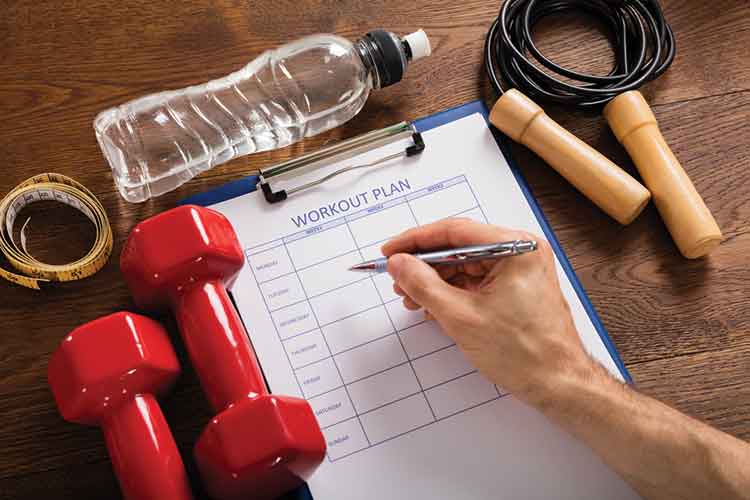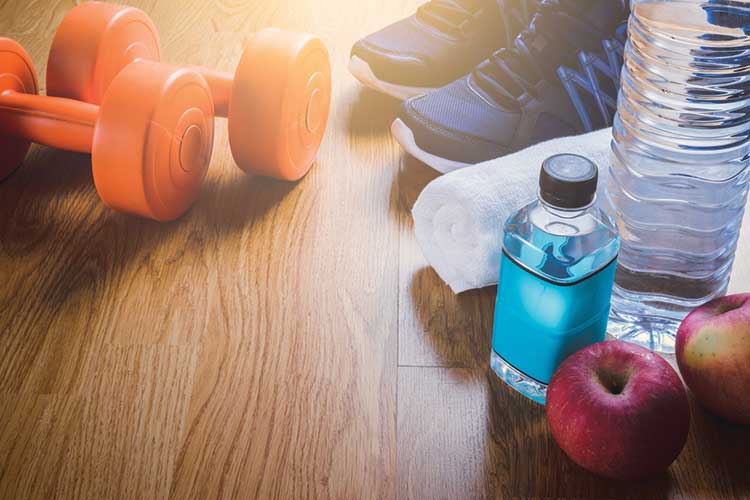Fasting or otherwise, Ramadan could well prove to be the month to usher in a host of fitness goals and stick to them all through the year. With the season imbuing the air with palpable notes of solemnity, there is a sense of responsibility to tasks started and resolutions made – even for those who follow a regular workout routine that include fasting and fitness.
So, if you are a stickler for fitness, what you need to consider while continuing with your established workout schedule is to incorporate a few subtle changes and additions. Most importantly, understand that your focus ought to be on maintaining the current fitness level than on losing weight or going to the next level of your fitness chart to keep your fasting and fitness goals going. Your best bet is to lower the intensity of your workout and shorten the duration so as to prevent muscle loss and weight gain. Often, with high intensity workouts, the temptation to binge on rich foods during dinner becomes difficult to curb.
For beginners in the fitness circuit, the first step should be to establish better eating habits and chalk a simple workout routine during this season. While this will automatically put you on a weight loss mode, it will also inculcate a sense of discipline that will be easy to follow in the months following.
Workout schedule

While office schedules dictate the timings that are conducive for exercises during other months, Ramadan brings with it a structured setup that makes it easy to regulate the time and stick to it. Some experts suggest working after iftar as the meal consumed is small and the body is replenished with adequate liquids. However, if the time between iftar and the prayers is short, it is advisable to opt for a shorter session with slightly higher intensity. Working out an hour or so before breaking the fast is considered to be ideal by many, as the iftar following the workout will give you the required boost to hang on to your fasting and fitness regime. You could also consider the time after Taraweeh Prayers or before Suhoor, since morning workouts can push up your energy quotient for the day. This way, you could follow your workout with a nutrient dense Suhoor meal and plenty of water. Alternately, find out what schedule works best for you while fasting – whether on an empty stomach or after breaking fast – but remember that working out while body is dehydrated and starving can lead to a loss of strength and muscle mass.
Ideal workout
As mentioned, it is advisable to follow a low intensity workout during the fasting period. Ideally, stick to exercises within your fitness level and follow a moderate workout routine. That could translate as a light jog, walk or even cycling; die-hard gym enthusiasts may want to continue with their schedule, albeit on a lower intensity. And that means no cardio training. Instead, focus on resistance training for two to three times a week and limit cardio for not more than two days a week (around 20 to 30 minutes of light to moderate intensity cardio). If you have not prepared for the Holy Month a week or so before, it is best to start slowly on the exercise bandwagon. Skip it for a couple of days or until your body is accustomed to the idea of fasting and is ready to workout.
Calorie requirement


Dieticians, generally, advice against going on a low-calorie diet during Ramadan as it will sap your energy further. Eat right amounts of calories and choose foods with high nutritional values, advice experts to keep up with you fasting and fitness regime. The idea should be to follow your regular eating habits and not over-indulge or plan a drastic weight loss programme. Besides, with summer starting to peak, it is imperative to drink a minimum of two to two-and-half litres of water, more so on days when your workouts are scheduled. Concurrently, avoid, rather reduce coffee and/or tea as they tend to dehydrate further. Add to that salty foods, sodas and drinks with refined sugar – all of which can make you thirsty further. If you are one of those who prefers to exercise after iftar, eat carbohydrates and sugar while breaking fast, so as to replenish burnt fat, suggest experts. And following a gym session, eat lean proteins like white fish, while avoiding carbs before bedtime.

